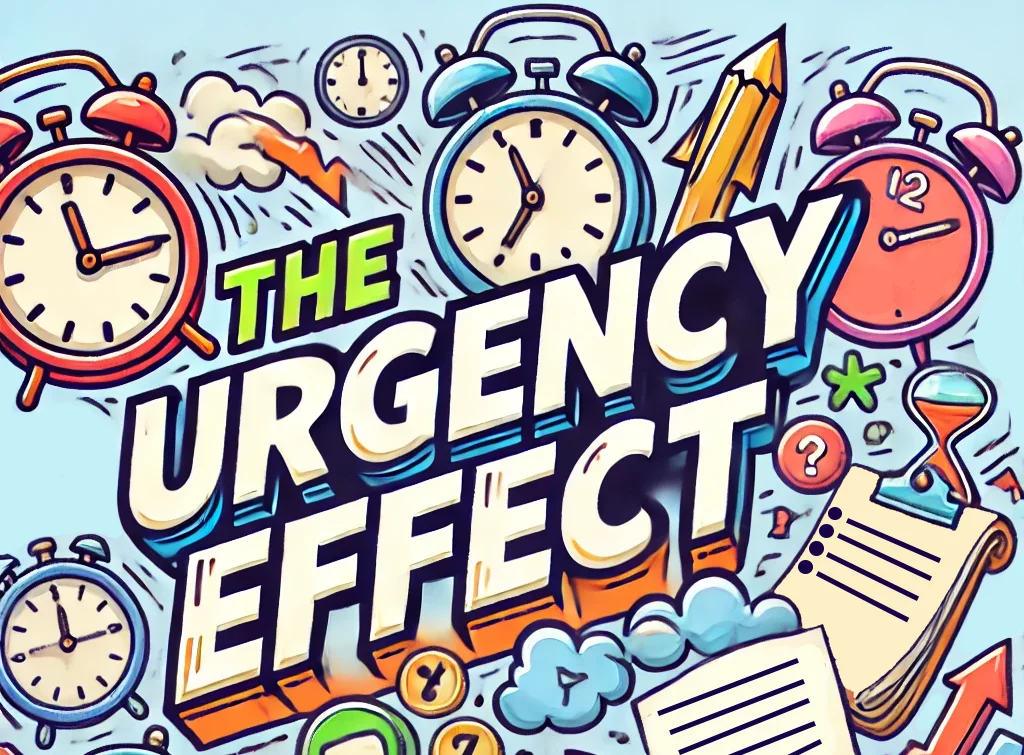
The Urgency Effect Is Killing Productivity! [How To Overcome It]
If something is urgent, doesn’t mean it’s important.
The urgency effect makes people waste countless hours at work and at home!
The Mere Urgency Effect Defined
Mistaking the urgent for the important!
The human brain always prioritises something with a closer deadline.
The best example is an email in your inbox.
The fact someone is waiting for you to reply makes you want to respond as soon as possible, when taking an 20 minutes to continue on your current task has more value in the end!
Focus on progressing things as much as possible, and make time to respond to the email later.
Note: The Urgency Effect and Mere Urgency Effect are interchangable names for the concept!
How Do I Beat It?
These three methods will make sure you beat the Mere Urgency Effect.
1. Essentialism / The Eisenhower Matrix
Essentialism says you should work out and focus on your highest-value activities by ranking tasks for importance ONLY and then doing the few essential tasks at the top of your list.
This means you aren’t just looking at how urgent a task is, only how important it is.
You focus on what will really make a difference.
If Essentialism sounds scary then the Eisenhower Matrix is a less strict version that helps you prioritise your tasks correctly.
2. Use Deadlines Right
If deadlines drive your focus, then use this to your advantage.
Give important but not urgent tasks short completion windows to force yourself to focus on them.
The more important the task, the nearer the deadline should be, to ensure you are prioritising correctly.
3. Timeboxing
This works well if you don’t have the luxury of shutting distractions out – for example, you are relatively junior and work as part of team and so expected to be responsive to other team members.
Separate out some time each day for low-value tasks.
For example, only open your email after 3 hours of work, so it doesn’t enter your mental priority list.
This will let you focus on important tasks and still allows you time to take care of some little things.
You can find a full implementation of timeboxing in this article.
Conclusion
The Urgency Effect will impact your productivity if you don’t learn to manage it.
The human brain may be amazing but it isn’t perfect.
Developing good time management habits allows you manage its shortcomings and focus on your most significant tasks.
- Facebook: https://www.facebook.com/profile.php?id=100066814899655
- X (Twitter): https://twitter.com/AcuityTraining
- LinkedIn: https://www.linkedin.com/company/acuity-training/



